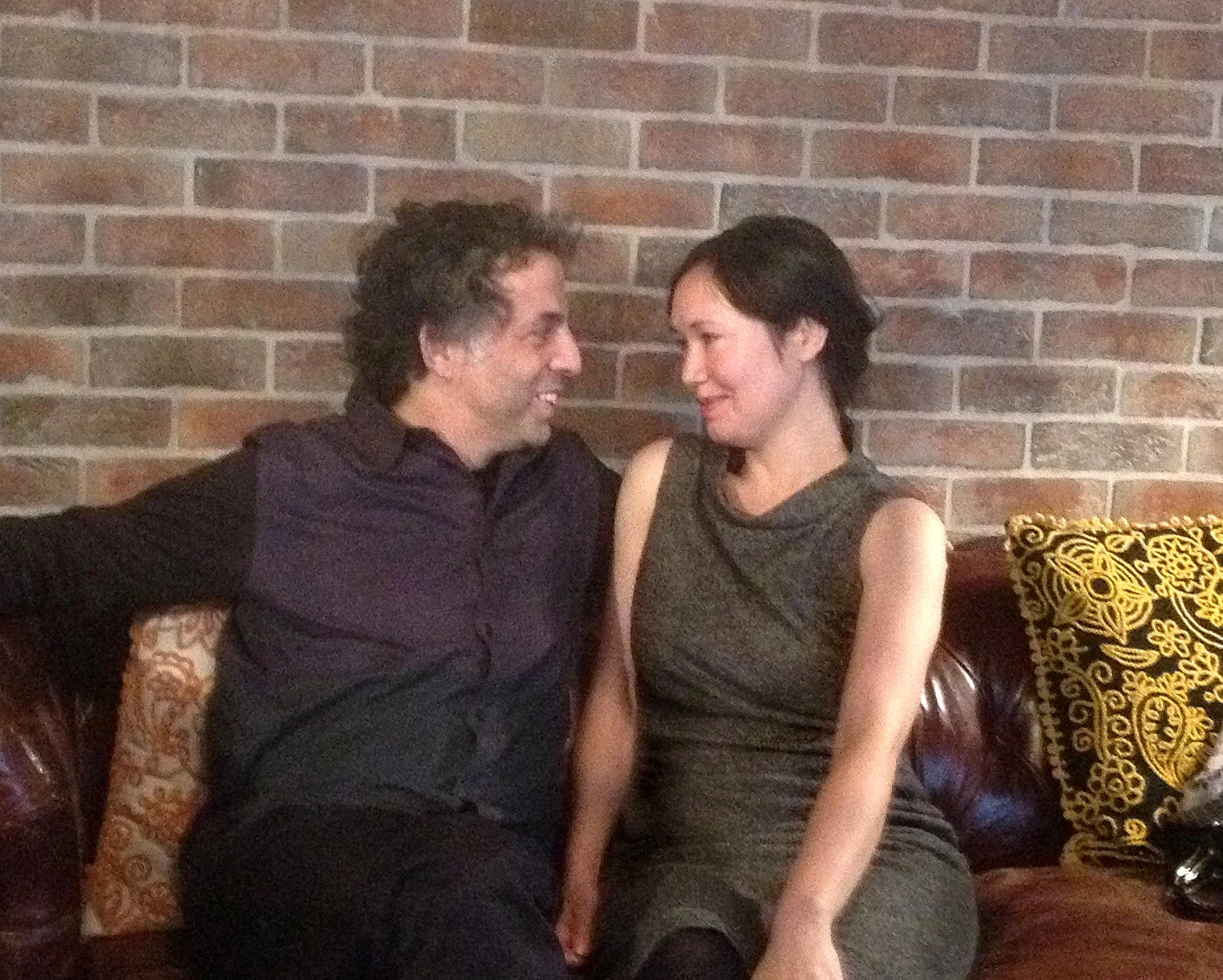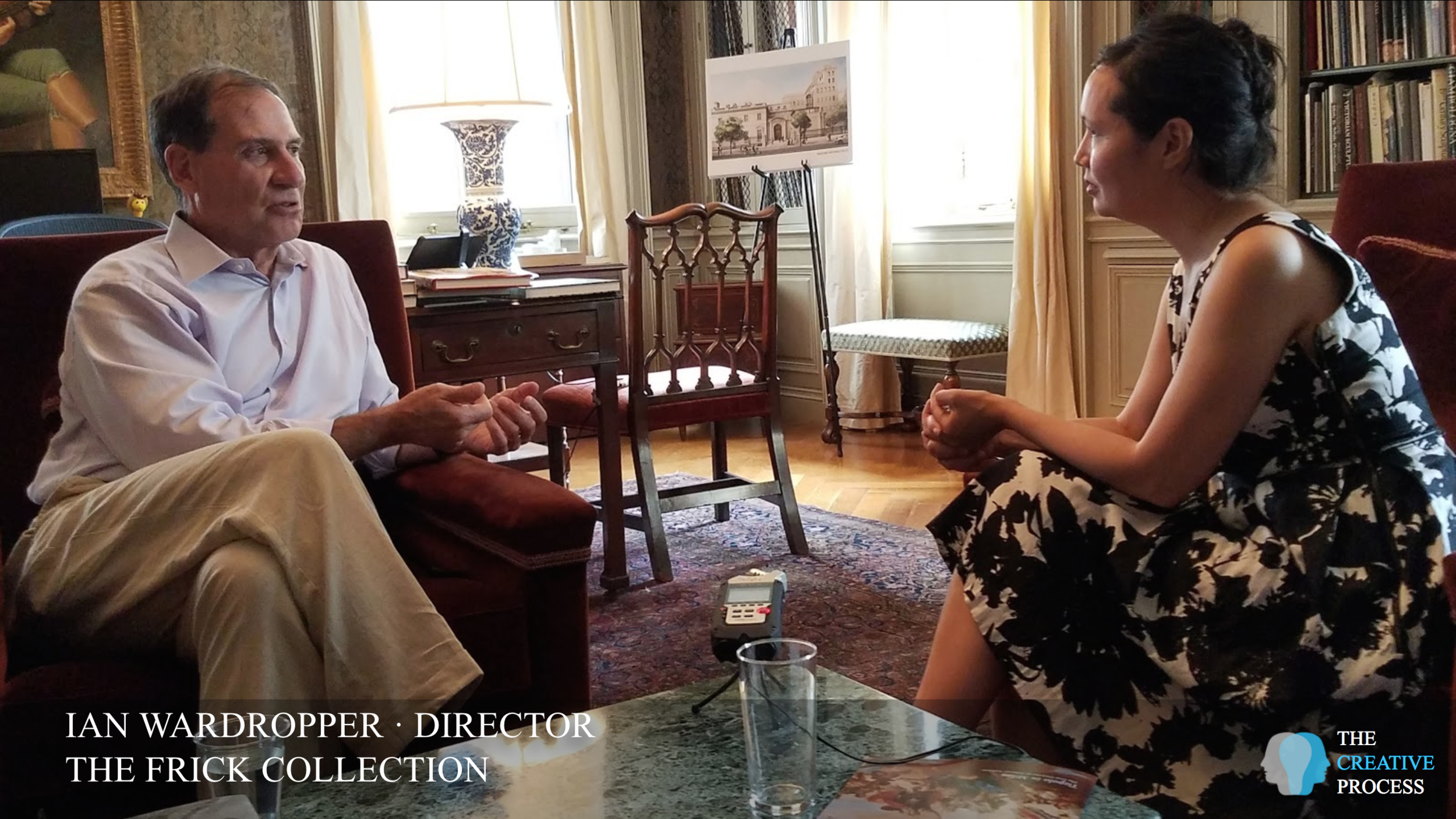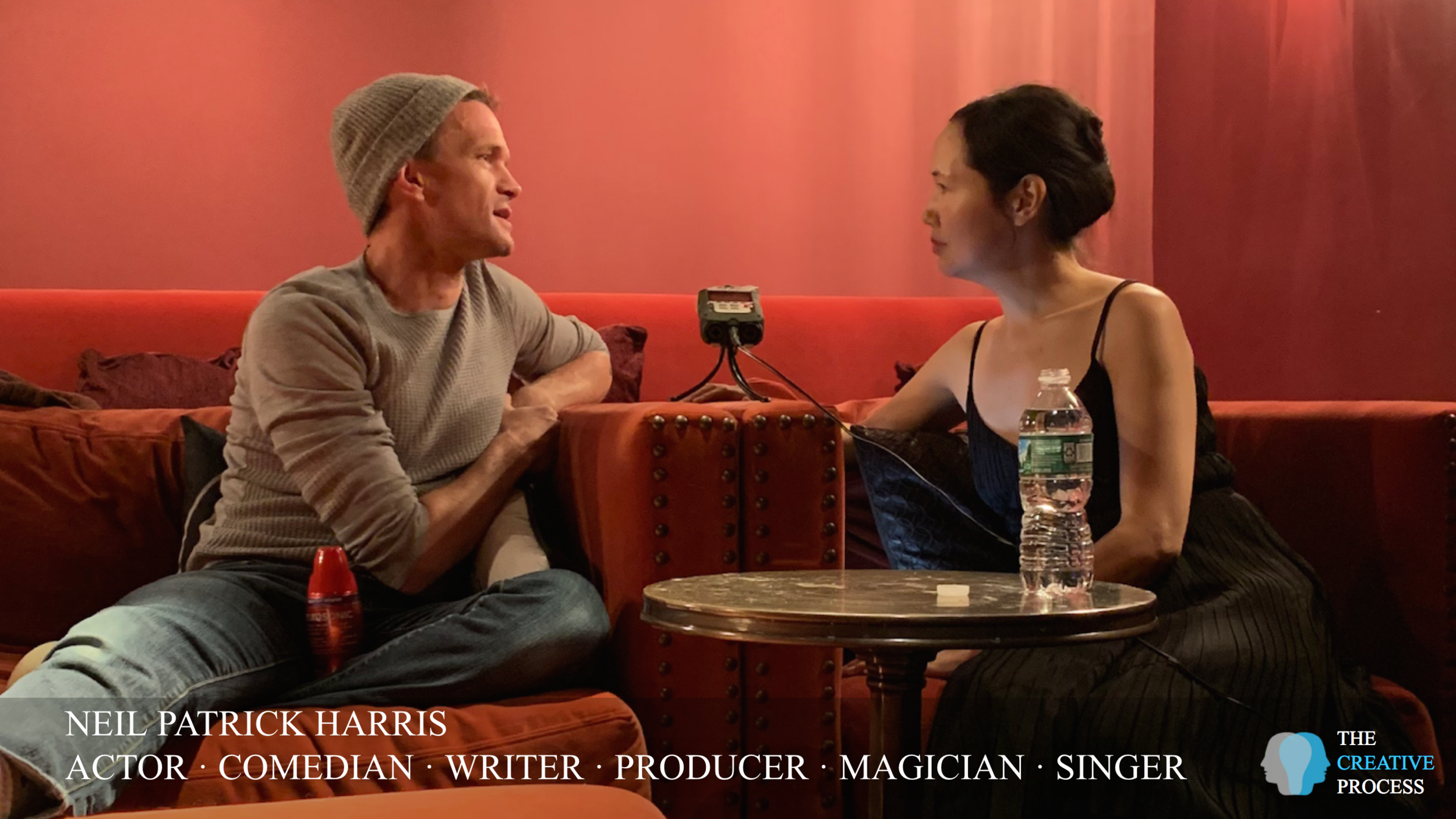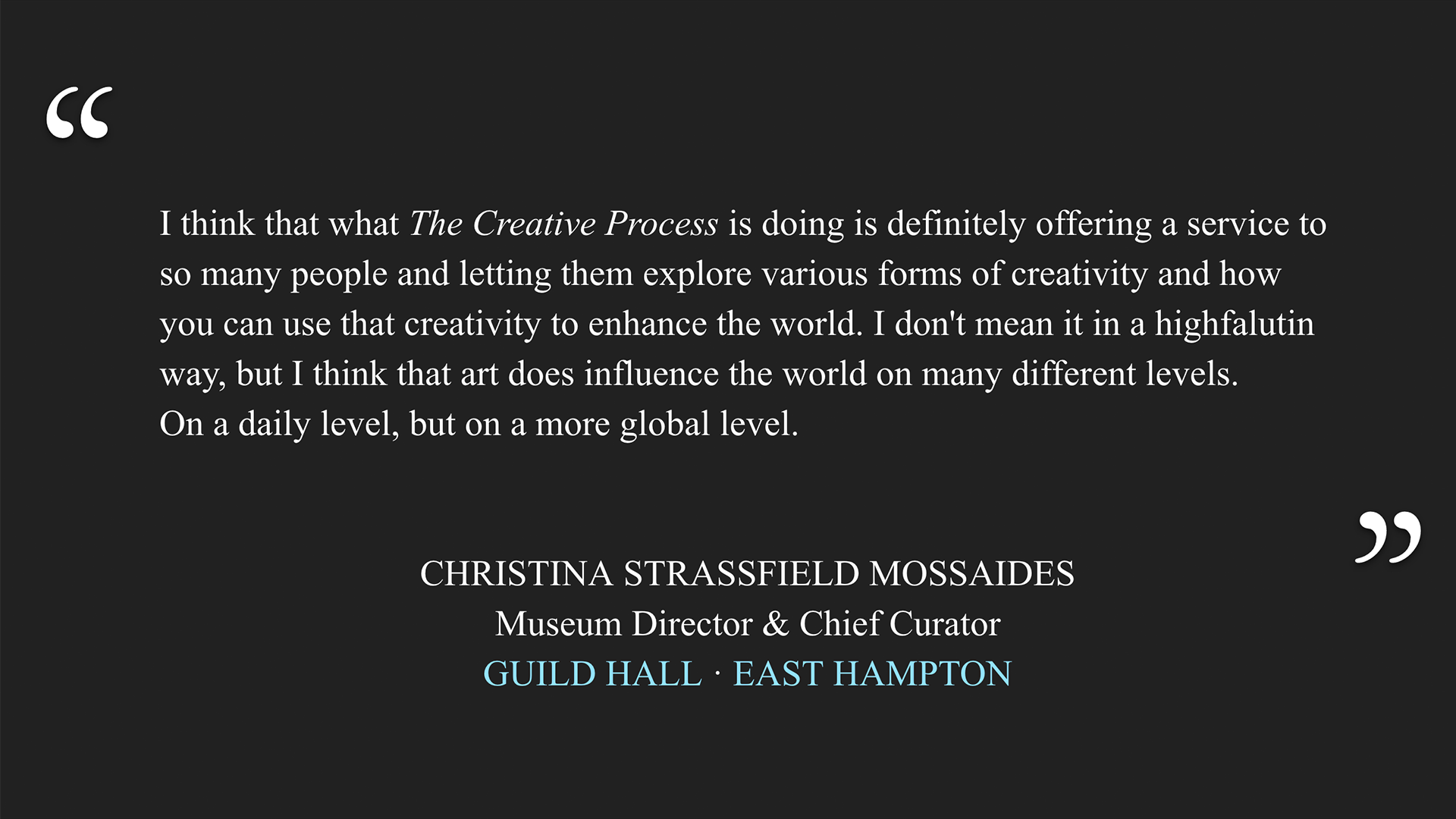Etgar Keret was born in Ramat Gan and lives in Tel Aviv. He is a lecturer at Ben-Gurion University of the Negev and author of five short story collections and, most recently, The Seven Good Years: A Memoir. In addition to his stories, he has written graphic novels, TV shows, movie scripts and a children’s book. Jellyfish, a film he directed with his wife Shira Geffen, won the 2007 Camera d’Or at the Cannes Film Festival. His work has been translated in thirty-seven languages and has appeared in The New Yorker, The Paris Review, and The New York Times, among many other publications, and on the NPR radio program This American Life, where he is a regular contributor. He is the recipient of the 2016 Charles Bronfman Prize for "conveying Jewish values across cultures and imparting a humanitarian vision throughout the world."
ETGAR KERET
When I compare novelists to short story writers or very short story writers, I can’t compare them, but one thing for sure, the purpose is different. I think that someone who writes tries to create or document a world. And when you write very short fiction you try to document a motion, some kind of movement. It’s not even time. Let’s say if you try to draw a picture of a lake. A lake and trees next to it, then this is like writing a novel. But if you, let’s say I throw a stone in it and I don’t want to draw the lake, I just want to draw the ripples in the water. So basically I think there is something I try to look for in short fiction, that it won’t be encumbered by it. But it won’t be physical, it will just be some kind of a... It’s like if I move my hand, then it’s like if you don’t draw my body, but you just draw... [Keret makes a movement with his hand.]
[...]
When I grew up, basically a lot of the people around me spoke Yiddish. Both my parents spoke Yiddish and a lot of the other people we knew. And they would always tell each other jokes in Yiddish and laugh really, really out loud. And then I would ask––what is the joke?––and they would translate it to Hebrew and it wouldn’t be funny. And they would always say, “in Yiddish it is very funny.” So I always had this feeling that I grew up with an inferior language. That I was living in a language in which nothing was juicy and nothing was funny and that basically there was this lost paradise of Yiddish in which everything seems to be funny. So when I grew up and I started reading I always looked for Yiddish writers. Writers like Bashevis Singer or Sholem Aleichem because I already knew there is something powerful hiding under that Yiddish.
[...]
I see myself primarily as a storyteller, not necessarily as a writer. I always like to try and do something in an environment or in a context that is different or would be challenging. Me and my wife we did this thing, last year or a year and a half ago, a project with a dance group called the Pilobolus. And for me the challenge there was trying to tell a story with no dialog. And now trying to set a story in a different country, in a different language, is something that I like, actually. I like to be driven a bit outside of my comfort zone.
The God of the Lake, inspired by Etgar Keret's dream of being drowned by his imaginary brother
KERET’S DREAM
I had this reoccurring dream and in this reoccurring dream I go to visit a brother of mine who does not exist, this brother, and he is the God of the Lake. All the amphibian creatures listen to him and what he can do is he can lose his body and become water. And when I meet him he says that he feels that his parents like me better than they like him. And I say, "Why do you say that?" and he says, "because they never wanted to me to become the God of the Lake. They always wanted me to have a degree from university and you're a professor and I never graduated. And I say to him, "But you're a god, you know." And he says, "Yeah, but I think, our parents don't care so much for [me] being a god." "But you're one with nature." "Yeah, but they don't care." And in this dream I always woke up because what would happen is I would go to sleep. The details are a little bit different [each time]. Sometimes it would change, it would shape shift. Sometimes I would sleep next to the lake and I'd wake up and take off all my clothes and I enter the lake and as I start swimming two hands in the form of water come from the lake and try to drown me. And when they try to drown me I shout. And then I see my brother who is asleep. He's like water and in his sleep he was trying to drown me. And when he wakes up he says, "Oh, I'm so sorry. It wasn't intentional. It was just in a dream." And he hugs me and he's made of water. And he cries watery water. It's a very weird kind of thing.
THE CREATIVE PROCESS
(laughing). It is strange. Freud would definitely have something to say about that! It's beautiful, too. It's scary, though.
KERET
It wasn't scary, though, as I felt it in the dream. I think that it was [about the] tension between the conscious and the unconscious.
[...]
Stories are always about conflict. If everybody is happy there is no story. And I think there is something about Israel, it’s an immigrant country, but unlike let’s say the US, people who immigrate following the American dream, in Israel most of the people who emigrated were chased there. So they came after the Holocaust, they came after persecution in Arab countries. It’s almost like a last resort, so there is this kind of feeling side-by-side with the extreme right-wing narrative. This is the Holy Land. Most people, even if they subscribe to that, they have some kind of a notion of a past.
THE CREATIVE PROCESS
A fugitive?
KERET
Yeah, of a fugitive. And in that sense you have a country full of fugitives who come from different backgrounds, which I said once in an interview that “the sensibility of Israel is less of a country and more of a reality show.”
THE CREATIVE PROCESS
Survivor.
KERET
Usually if you take someone from a variety show, it’s good if he’s had abusive parents or if he lost his leg in an accident. And in Israel if you go through passport control and tell them you want to come in. You can’t say, “I want to come.” “No!” You have to say something [more elaborate], you know? And it’s a country of people who were in a sense uprooted. So I think that there is something about this energy that creates a genuine unrest, that has many positive things and many negative things. Because I think that, on the positive side, people are very enervated because they don’t take the reality around them for granted. Somebody who immigrated to a country, there are many things that they can say, like, “Why do French people do this?” but a French person would never ask that because he was raised there.
THE CREATIVE PROCESS
Programmed?
KERET
Yeah, he is blind to the option of seeing the exterior. And I think that immigrants always have this sense of perplexity. And I think that the religious secular tension, European Jews and tension of those coming from Arab countries, Palestinians, radical right wing Israelis, coming together, it’s really like a series of never ending explosions. And I must say that being born to this… I have these childhood memories that seem very mundane, but only after traveling do I realize that they were not that normal. Like I remember when I was six years old, there was the ‘73 war and we had the Day of Atonement in which everybody fasted and Syria and Egypt attacked us on the Day of Atonement. So they called all the reservists to duty. So basically [they break out the military vehicles] and my father was wearing a uniform. They give him a gun and he goes to fight on the same day. And I remember, I was six years old, and my father gave us a note and the army were waiting for him downstairs and he says, “Just a moment, just a moment.” And he says to my mother, “So listen, if I get killed, sell this apartment. Don’t sell it for less than €200,000, okay? I owe this guy €5000. And you know, Jacob? I owe him €3000. And I owe this guy... so you have in the end €80,000.” And then my mother said, “And where would I live?” And my father gave her a kiss and said, “You’re a smart woman, you’ll think of something.” And he gets on the Jeep and drives away. And the next time I see him he’s miles away [in the distance]. So as a six-year-old I grew up planning what would happen if he would die tomorrow. [...] So I don’t even remember it as a post traumatic experience, I just remember it as the way I grew up. So I think that I was very blind to the reality I grew up in until I became a father. And when you’re a father, you face and have to explain to your son all those things, but my father never kind of explained it to me. Like, you know, this is reality. If somebody grew up in London and he says, “Daddy, why does it rain?” “It rains. What can I do?” So my father never accounted to me. When my son said to me, “If people kill each other here all the time. And if, let’s say, your Prime Minister has an opinion that’s different than yours. And if it’s difficult for you to say sometimes what you want? They when why do we stay here?”
[...]
I think that when I write a story, if I could come to your room and read a story to you instead of you reading it in a book, I would prefer to do that. [...] It’s just that feeling that there is something in the stories that is a kind of an intimate connection. I think that, let’s say, I think there’s objectivity, but I think that most of them use some kind of projected voice. And you talk about repetition? It’s not something that I do consciously, but I think that repetition appears a lot in my writing. In my mind we revisit the same place, but the repetition is never complete. In that sense, it seems like a circle, but it’s actually a spiral. So when you look [upwards] it seems like the same point, but when you look down at the details... Many times in my stories, people in my stories, something happens to them and then later on they tell what happened to somebody. And at first glance, even when I write it seems as if they’re telling what happened, but when you read it you see that they are not telling exactly what happened but by some kind of nuance they [have changed it]. (Keret makes a twisting gesture with his hand.)
STORYTELLING AND OBJECTIVE REALITY
If a child says to you, “Five kids beat me up after school.” He means that it was very scary. He doesn’t mean that five kids beat him up. It could be one very skinny kid, but right away it’s not objective, but it’s an attempt to say to you how it felt. And it is very, very close to the way I write. You know, right now I work on a TV series. What I try to do in the TV series is reject the attitude that is very connected to subjective consciousness so it’s not a point of view where the camera guides the eyes. I don’t want to show you where reality objectively is, I want to show you how you experience it. If you see it, it won’t seem surrealistic in any way because it’s not as if people levitate or anything like that, but at the same time it would be something, let say, if this guy feels that he’s responsible for everything in this world, then every time he would take an action it would have extreme consequences. It’s like if you write notes with a pen and I talk to you and, I don’t know, you check an SMS and I steal your pen. And you go home and later I call you and your boyfriend will say to me, “She killed herself.” “Why?” “Somebody took her favorite pen and she thought that her life meant nothing without it.” Then this kind of thing really subscribes to this guy’s over-responsibility for life. So it’s like this would be what’s in his mind or how he experiences action, but when we will be with him, this would be our world, which which is very much like a kid telling you five kids beat me up when it’s only one. Or I was chased by a wolf when actually it’s another child. It felt like a wolf.
THE CREATIVE PROCESS
What were some of your father’s bedtime stories to you?
KERET
There was nothing in them about objective action. A lot about empathizing with people. Storytelling was an exercise in empathy. And I think that this is really true of art, for me. Every artist finds something else. For me, I think that it’s this ability to empathize.
Etgar Keret and Mia Funk
This interview was conducted by Mia Funk with the participation of collaborating universities and students. Associate Interviews Producer on this podcast was Cassidy Edwards. Digital Media Coordinator is Hannah Story Brown.
Selected French translations:
Quand je compare des romanciers à des auteurs de nouvelles ou à des auteurs de très courtes nouvelles, je ne parviens pas à les comparer, mais une chose est sûre, le but est différent. Je pense que quelqu’un qui écrit essaye de créer ou de décrire un monde. Et lorsque vous écrivez une nouvelle très courte, vous essayez de décrire une mobilité, une sorte de mouvement. Il ne s’agit même pas du temps. Disons que si vous essayezde dessinez, disons un lac, vous voyez ? Un lac avec des arbres à côté, je cherche simplement à dessiner les ondulations de l’eau. Donc c’est essentiellement ça, je pense qu’il y a quelque chose que j’essaye de chercher dans une courte fiction, qui ne sera pas encombré par cela. Mais vous voyez, ce ne sera pas physique, ce sera simplement une sorte de … C’est comme si je bougeais la main, puis c’est comme si vous ne dessiniez pas mon corps, mais que vous dessiniez simplement… (Keret fait un mouvement de la main)
Quand j’ai grandi, l’essentiel des gens autour de moi parlaient Yiddish. Mes deux parents parlaient Yiddish ainsi que de nombreux gens que nous connaissions. Et ils se racontaient toujours des blagues en Yiddish et riaient vraiment, vraiment fort. Ensuite je demandais – où est la blague ?- ils la traduisaient en hébreu et elle n’était plus drôle du tout. Et ils répétaient toujours : « c’est plus drôle en Yiddish ». Donc j’ai toujours eu le sentiment de grandir avec un langage inférieur. Que je vivais avec un langage dans lequel rien n’avait de goût et rien n’était drôle, et qu’essentiellement il y avait ce paradis perdu Yiddish dans lequel tout paraissait amusant. Donc quand j’ai grandi et ai commencé à lire j’ai toujours recherché des auteurs Yiddish. Des écrivains comme Bashevis Singer ou Sholem Aleicheim parce que je savais déjà que quelque chose de puissant se cachait derrière ce Yiddish.
traduit de l’anglais par Olivia Reulier
Mia Funk is an artist, interviewer and founder of The Creative Process.






























































































